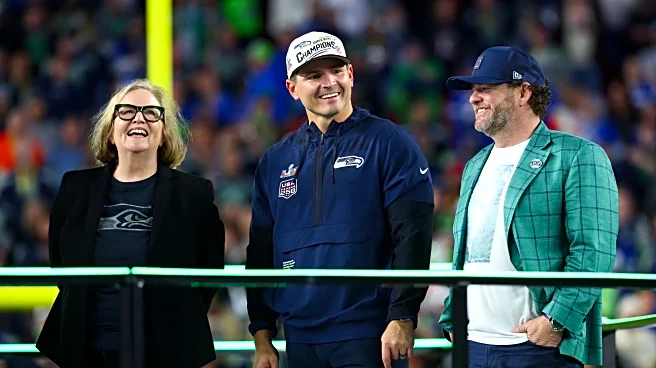What's Happening?
MLB Commissioner Rob Manfred has proposed a radical realignment plan that could end the traditional American League vs. National League structure. The plan involves geographic realignment, grouping teams like the New York, Chicago, Los Angeles, and Florida teams together. This change aims to reduce travel burdens and create a more sensible TV schedule. The proposal comes as MLB considers adding two expansion franchises, potentially altering the postseason format. Manfred's plan is expected to face resistance from traditionalists but may appeal to fans seeking more regional matchups.
Why It's Important?
Manfred's realignment plan could significantly impact MLB's structure and traditions, altering the league's competitive landscape. The proposal aims to improve player travel conditions and enhance TV programming, potentially increasing fan engagement. However, it challenges long-standing traditions, risking backlash from traditionalists. The realignment could influence team rivalries and the postseason format, affecting the league's dynamics. The plan's success depends on its ability to balance innovation with respect for MLB's history.
Beyond the Headlines
The realignment proposal raises questions about MLB's commitment to tradition versus modernization. It highlights the league's efforts to adapt to changing fan preferences and media landscapes. The plan could set a precedent for other sports leagues considering similar changes. Ethical considerations include the impact on players' travel and the preservation of historic rivalries. The proposal's reception will reflect broader cultural attitudes towards sports traditions and innovation.












